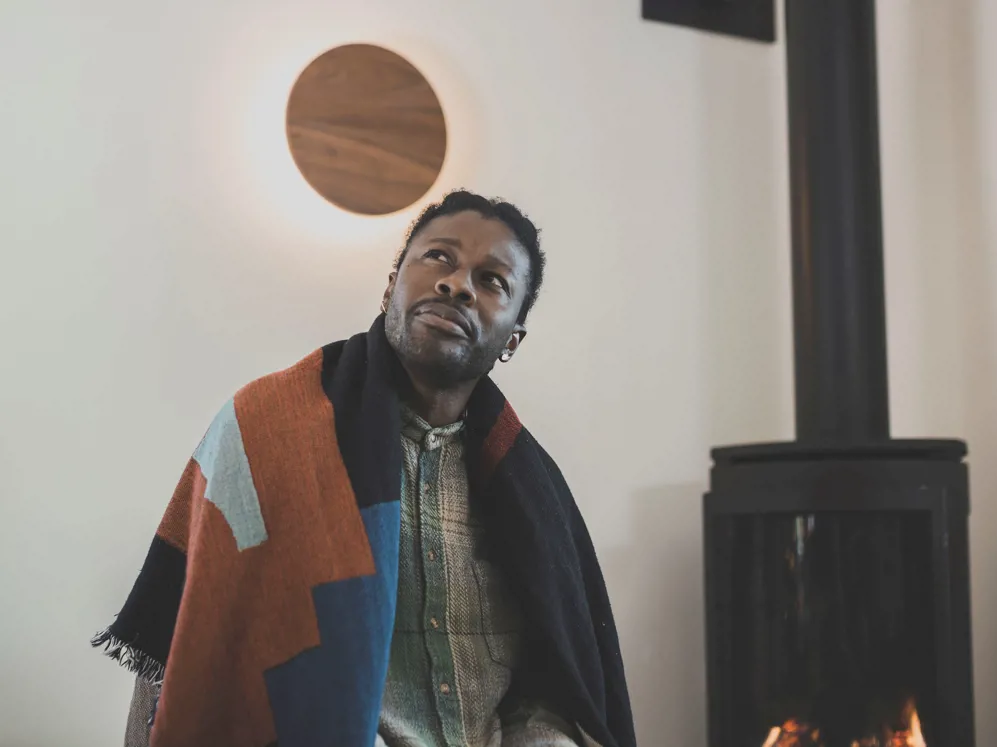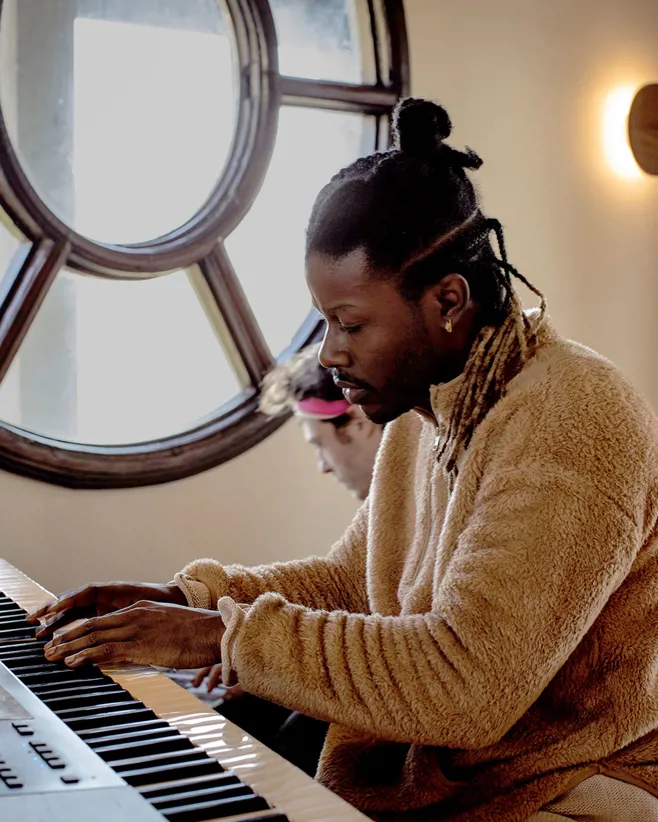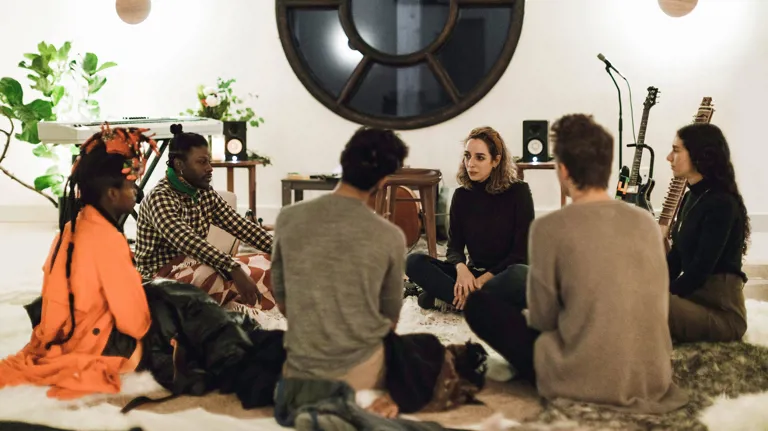Incubating future movements in travel and culture

Words Frankie Wechsler Images Ian Clontz
Though he’s often referred to as an “alternative R&B singer,” Jesse Boykins III is the kind of artist who defies classification. Yes, he can be seen within a soul tradition, but his voracious aesthetic eclecticism ranges from afrobeat to trance, acid jazz to glitch, new age to hip hop and beyond, not even to mention his literary influences. It’s been a decade now since Boykins’ first two independent releases, the EP “Dopamine: My Life On My Back,” and the follow-up album, “The Beauty Created,” thrust him onto the radar of music bloggers and new-school R&B fans. In the years since, he’s collaborated with everyone from the Chicago rapper Noname to polyglot electronic producer Machinedrum to the teen pop star and Hollywood scion Willow Smith. Boykins’ latest release, “Bartholomew,” was originally released on Soundcloud, then reissued on Def Jam when he signed with the major label in 2017. We spoke to Boykins during his residency at Further Timber Cove: The Expanding Artist, where he was working on writing songs for his next (unannounced) release.
We’ve been talking a lot about how environment can affect the creative process. Can you talk a bit about Chicago and how it has influenced you?
Well, I was only born in Chicago. I lived most of my childhood in Jamaica. I feel like growing up where I was actually allowed to be in nature taught me to appreciate the day-to-day things. I was fascinated with birds and snails and all kinds of things that weren’t humans, and just appreciating the fact that they weren’t really minding me none. They did what they wanted to do. So I guess it’s a sense of freedom, I would say, and with my music and the things that I create there is always a perspective of it being very natural and very free—free as I can be, in the moment.

Jesse Boykins III
Speaking of freedom, you move freely across a lot of genres, whether it’s hip hop or reggae or soul. How do you define what you’re creating—or don’t you?
I believe people are influenced by the things they enjoy. But as far as labels, I’ve always seen it like a crutch, specifically because I’m a black artist, so if I’m black then I get put in these categories. A lot of times it gets kind of confining, to be a black artist and to be soulful or to speak from the heart or to express emotional vulnerability. So I never really looked at anything like that. I know the things that I love and that could range from anything. I could listen to Moombahton [a fusion genre of house music and reggaeton created by American DJ and producer Dave Nada in Washington D.C.] for six months and I could put it in my music, but I don’t ever really say, ‘I'm an R&B singer, I’m a soul singer, I’m a jazz singer, I’m a reggae singer, I’m a rapper.’ I don’t know, I just like to make things. I like sounds. I like telling stories. I think it’s important to speak on connection and express my genuine honesty and perspective and admit mistake sand be human. That’s a thing that at least I respond to in all genres of music is the truth, and some sort of a testimony. So that’s kind of how I like to be.

What about poetry and spoken word? Who are some of your lyrical influences?
Words are important to me. I even try not to use certain words or to make sure that I know the exact definition of a word before I decide to use it how everyone else is using it. And I learned that from coming up reading a lot of poets, Nikki Giovanni and Langston Hughes and even like old-school Catholic James Joyce, I realize most of them are really connected to the present and what’s happening around them and finding a way to make it fantastical but also to truly connect people who wouldn’t understand that world. They bring you in with their words. So I’ve always tried my best to give the effort in that aspect and tell the story in a way where people could live with it forever, even if they don’t understand it the first time. So that’s how I think about words and poetry and what it means to me, communication and storytelling and handing down tradition.
Can you talk a bit more about storytelling and how that plays into your work?
Storytelling for me is a very visual thing and I’ve always been very imaginative, and I’ve always liked to put myself in different people’s shoes and try to understand them in that way. It’s like tapping into something and then actually coming out of what you tapped into it and being like, ‘Oh wow, I know what just happened and now I want to share what just happened.’ So that's kind of how I’ve always looked at it. But it’s also how do you tell the story? What’s the focus? What’s the end goal of you telling the story? All these things matter, and you have to take that into consideration. I think the best stories are the ones that make you feel like you’re there.